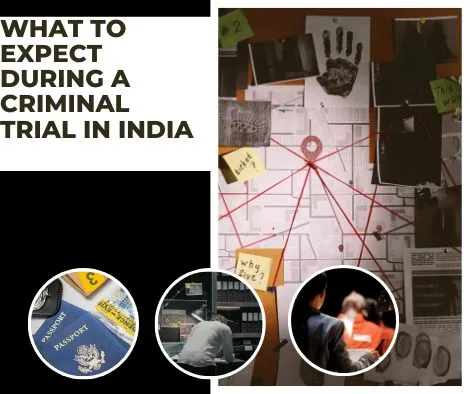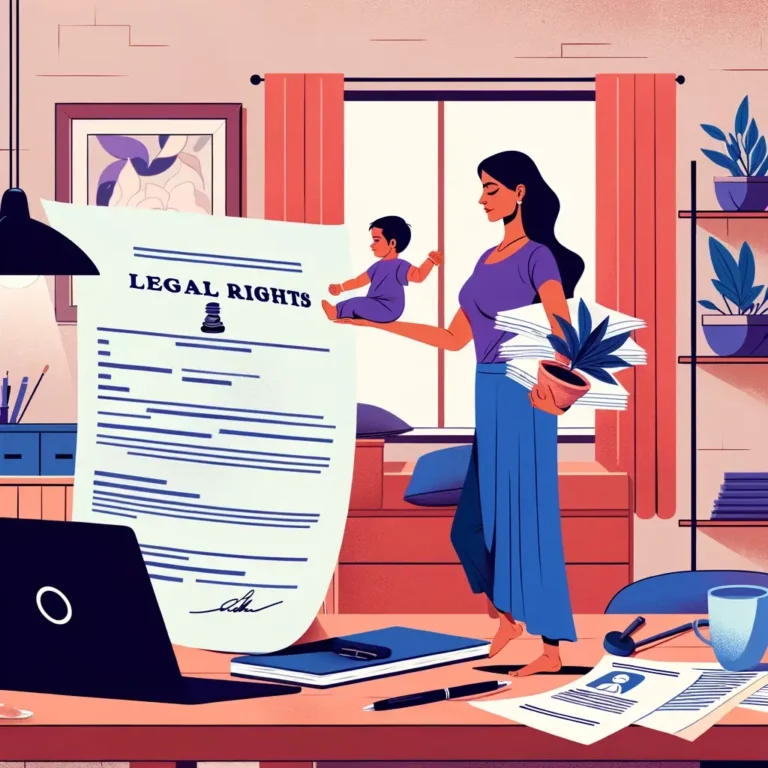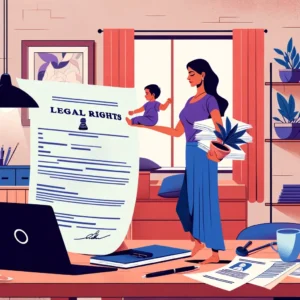In this article we have discussed about important Legal steps if Someone Blackmails You
In today’s digital era, where personal information is more accessible than ever, the threat of blackmail has unfortunately become a common concern. Blackmail, a form of coercion that involves threatening to reveal sensitive information about someone unless demands are met, can lead to significant emotional and financial distress. Whether you’re facing threats over the internet or in personal dealings, knowing the legal steps to take is crucial for your protection. This article aims to guide you through understanding blackmail, initial responses, legal recourse, and self-protection strategies to navigate this challenging situation.
Understanding Blackmail: Know Your Adversary
Blackmail involves the use of threats to coerce someone into doing something or paying money under the threat of revealing confidential information. Unlike extortion, which may involve physical harm threats, blackmail leverages sensitive information as its weapon. Legally, for an action to be considered blackmail, it must include a threat (explicit or implicit), a demand for something of value, and an intent to coerce the victim against their will.
The nuances of blackmail can vary widely, from threats of exposing personal photos to threatening to disclose someone’s private information unless they comply with certain demands. Recognizing these threats early on is the first step in taking control of the situation.
Initial Steps to Take: Regain Your Footing
1. Do Not Engage: Engaging with a blackmailer can escalate the situation. It’s advisable to avoid communication, giving you time to assess the situation calmly and strategically.
2. Preserve All Evidence: Collect and preserve all forms of communication with the blackmailer. This includes emails, texts, social media messages, and any other correspondence. Documentation is critical for law enforcement and legal actions.
3. Assess the Threat: Understanding the nature and credibility of the threat is essential. Determine what information the blackmailer has and the potential impact of its disclosure.
4. Secure Your Privacy: Immediately take steps to secure your digital footprint. Change passwords, enable two-factor authentication, and review privacy settings on all social platforms.
5. Consult a Legal Professional: Early legal advice can significantly impact your situation. A lawyer can provide guidance tailored to your specific case, including potential legal actions and strategies for dealing with the blackmailer.
6. Report to Law Enforcement: Despite the potential embarrassment, reporting the blackmail to law enforcement is crucial. They have the expertise and resources to handle such situations effectively.
7. Reach Out for Support: Facing blackmail can be isolating, but support is available. Lean on trusted friends, family, or professional counselors to navigate through this period.
Legal Recourse: Empower Yourself
Reporting to Law Enforcement: Blackmail is a criminal offense, and law enforcement should be your first point of contact. Provide a detailed account of the blackmail, including all evidence of communication and demands.
The Role of Restraining Orders: If the blackmailer’s identity is known and poses a direct threat, a restraining order can provide legal protection by prohibiting any form of contact with you.
Criminal Charges: Depending on your jurisdiction, charges against a blackmailer can range from extortion to cybercrimes. Legal professionals can advise on the most appropriate charges based on your evidence and situation.
Working with a Lawyer: Engaging a lawyer who specializes in cyber law or criminal defense early in the process is invaluable. They can navigate the legal complexities, represent you in legal proceedings, and work towards securing the return of sensitive information or pursuing damages.
Working with Law Enforcement: A Collaborative Effort
When involving law enforcement, come prepared with all collected evidence and a comprehensive account of the blackmail. Be honest and detailed in your report, as this information is crucial for a successful investigation. Ask questions about the investigation process and what to expect in terms of follow-up and case handling.
Self-Protection Strategies: Safeguard Your Well-being
Emotional and Psychological Self-Protection: The emotional impact of blackmail can be devastating. It’s important to seek emotional support from friends, family, or professionals. Engaging in stress-reduction activities and focusing on your mental health is crucial.
Digital and Informational Self-Protection: Beyond immediate responses, consider long-term strategies to protect your digital presence. This includes regular reviews of privacy settings, being cautious about the information you share online, and staying informed about digital security practices.
Legal Self-Protection: Keep detailed records of all interactions with the blackmailer and continue consulting with your legal advisor to understand your rights and the best course of action.
Physical Self-Protection: If there’s any indication of a physical threat, take steps to ensure your safety. This might involve improving your home security, changing routines, or in extreme cases, relocating temporarily.
Preventive Measures: Strengthen Your Defense
Educating yourself about common blackmail tactics and improving your digital literacy can help prevent future incidents. Consider professional help for securing your online presence and be vigilant about the information you share and with whom you share it.
Conclusion: Reclaiming Control
Facing blackmail is undeniably challenging, but with the right knowledge and resources, you can navigate this difficult time and emerge stronger. Remember, the law is on your side, and there are steps you can take to protect yourself and seek justice. By following the guidelines outlined in this article, you can take decisive action against blackmail, safeguard your privacy, and regain your sense of security.
Remember, you’re not alone. Support is available, and taking legal steps can not only help you resolve the current situation but also empower you to protect yourself against future threats. Stay informed, stay supported, and take action to protect your well-being and rights.
FAQs:Legal steps if Someone Blackmails You
- What is considered blackmail?
- Blackmail involves threatening to reveal information about a person unless they meet certain demands, usually for money or other benefits.
- Is blackmail a criminal offense?
- Yes, blackmail is a criminal offense and is treated seriously by law enforcement agencies.
- What should I do first if I’m being blackmailed?
- The first step is to not comply with the demands and contact local law enforcement immediately.
- Should I pay the blackmailer to stop them?
- Paying the blackmailer often doesn’t stop the blackmail and can escalate the situation. It’s advised not to pay.
- Can I be blackmailed with information that isn’t true?
- Yes, blackmail can involve false information, but it’s still considered a crime.
- What kind of evidence should I collect against the blackmailer?
- Collect all communications like texts, emails, voice messages, or any other evidence that shows the blackmail.
- Is it important to have a lawyer if I’m being blackmailed?
- Yes, consulting with a lawyer experienced in such cases is important for legal advice and protection.
- Can I get a restraining order against my blackmailer?
- Depending on the circumstances, a restraining order may be possible to protect yourself from the blackmailer.
- Are there any online resources for blackmail victims?
- Many countries have resources and helplines dedicated to helping victims of blackmail and cybercrimes.
- What should I do if the blackmailer is anonymous?
- Report the blackmail to the authorities; they have methods to trace anonymous communications.
- Is it possible to sue someone for blackmailing me?
- Yes, you can sue the blackmailer for damages in civil court, apart from the criminal proceedings.
- How do I deal with the emotional stress of being blackmailed?
- Seek support from friends, family, or professional counselors to manage the emotional impact.
- What are the penalties for someone convicted of blackmail?
- Penalties vary by jurisdiction but can include fines, imprisonment, and a criminal record.
- Should I tell my family or employer about the blackmail?
- It depends on the situation, but sharing with trusted individuals can provide support and help in decision-making.
- Can blackmail affect my professional life?
- It can, especially if it involves your professional life. Being proactive in seeking legal help is crucial.
- How can I prevent being blackmailed in the future?
- Be cautious with personal information, strengthen online privacy, and avoid sharing sensitive information with untrusted parties.
- Is online blackmail more common than in-person blackmail?
- With the rise of the internet, online blackmail, especially through social media, has become more common.
- Can minors be victims of blackmail?
- Yes, minors can also be victims, and it’s important for guardians to be vigilant and take immediate action if it occurs.
- How long do blackmail cases take to resolve?
- The duration varies based on the complexity of the case and the legal process in your jurisdiction.
- What if the blackmailer is in a different country?
- International cases can be more complex. Law enforcement agencies may work together across borders.
- Can deleted messages be used as evidence in blackmail cases?
- Yes, digital forensics can often recover deleted messages to use as evidence.
- Should I try to negotiate with the blackmailer?
- Negotiating with the blackmailer is generally not advised as it can worsen the situation.
- What is the difference between blackmail and extortion?
- Extortion typically involves threats of physical harm or coercion, whereas blackmail involves revealing or threatening to reveal damaging information.
- Can I anonymously report a case of being blackmailed?
- You can report anonymously, but providing your identity can assist in a more effective investigation.
- Are there specific laws against online blackmail?
- Many countries have laws specifically addressing online crimes, including blackmail.
- Can social media platforms help in cases of online blackmail?
- Social media platforms may assist in investigations, especially if their platforms were used for blackmail.
- What role do cyber security measures play in preventing blackmail?
- Strong cyber security can prevent unauthorized access to personal information that could be used for blackmail.
- Can therapy help victims of blackmail?
- Yes, therapy can be beneficial in dealing with the psychological impact of being blackmailed.
- Is it common for blackmailers to follow through on their threats?
- It varies, but many blackmailers may not follow through, especially if confronted with legal action.
- How can I educate myself and others about blackmail?
- Stay informed about personal security, and share resources and information with your community to raise awareness.
















